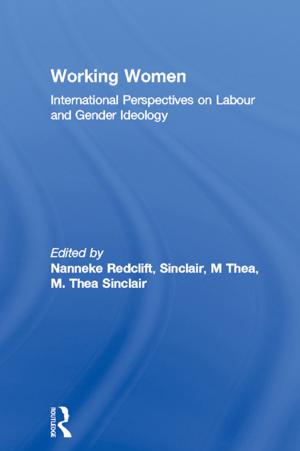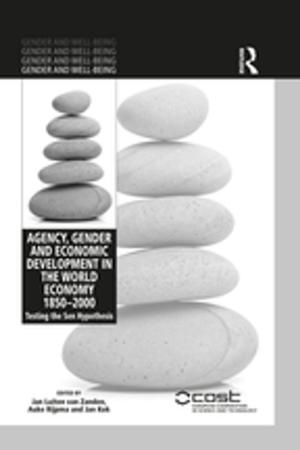Assessing Impact
Handbook of EIA and SEA Follow-up
Nonfiction, Social & Cultural Studies, Political Science, Politics, Regional Planning, Art & Architecture, Architecture, Landscape, Planning| Author: | ISBN: | 9781136571558 | |
| Publisher: | Taylor and Francis | Publication: | June 25, 2012 |
| Imprint: | Routledge | Language: | English |
| Author: | |
| ISBN: | 9781136571558 |
| Publisher: | Taylor and Francis |
| Publication: | June 25, 2012 |
| Imprint: | Routledge |
| Language: | English |
Written and edited by an authoritative team of internationally known experts in environmental impact assessment (EIA), this is the first book to present in a coherent manner the theory and practice of EIA and strategic environmental assessment (SEA) follow-up. Without some form of follow-up, the consequences of impact assessments and the environmental outcomes of development projects will remain unknown. Assessing Impact examines both EIA follow-up and the emerging practice of SEA follow-up, and showcases follow-up procedures in various countries throughout Europe, North America and Australasia. Theoretical and legislative perspectives are examined in the light of detailed case study examples, and the authors present a micro-, macro- and meta scale analysis of EIA practice ranging from individual plan and project level through to the jurisdictional level, as well as an analysis of the concept of EIA. Full coverage is given to the roles of proponents, both private and governmental, EIA regulators and the affected public in designing and executing follow-up programmes. This book is the must-have tool for impact assessment professionals, academics, regulators and proponents working on projects of all scales in all jurisdictions.
Written and edited by an authoritative team of internationally known experts in environmental impact assessment (EIA), this is the first book to present in a coherent manner the theory and practice of EIA and strategic environmental assessment (SEA) follow-up. Without some form of follow-up, the consequences of impact assessments and the environmental outcomes of development projects will remain unknown. Assessing Impact examines both EIA follow-up and the emerging practice of SEA follow-up, and showcases follow-up procedures in various countries throughout Europe, North America and Australasia. Theoretical and legislative perspectives are examined in the light of detailed case study examples, and the authors present a micro-, macro- and meta scale analysis of EIA practice ranging from individual plan and project level through to the jurisdictional level, as well as an analysis of the concept of EIA. Full coverage is given to the roles of proponents, both private and governmental, EIA regulators and the affected public in designing and executing follow-up programmes. This book is the must-have tool for impact assessment professionals, academics, regulators and proponents working on projects of all scales in all jurisdictions.















